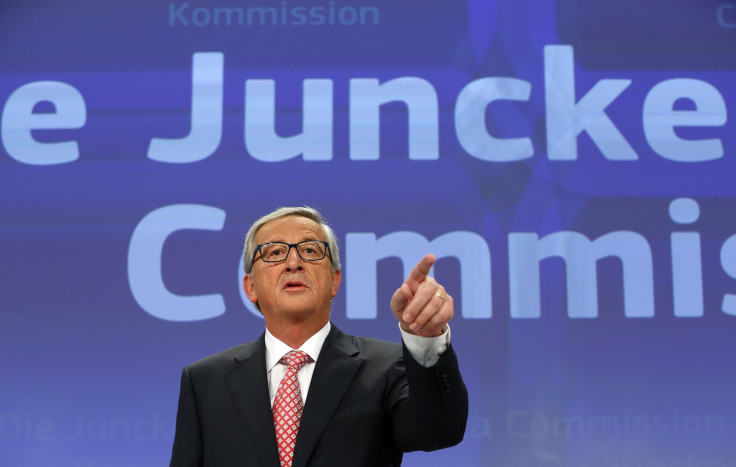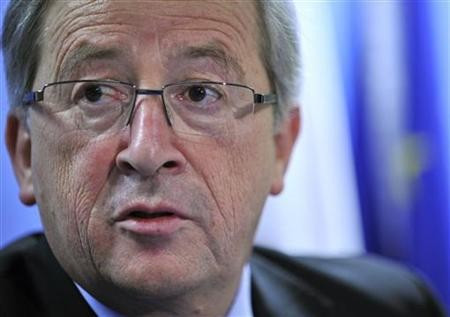Lux Leaks: Jean-Claude Juncker Facing Credibility Crisis After Latest Luxembourg Tax Avoidance Scandal

The ghost of Jean-Claude Juncker's past has just returned to haunt him.
Luxembourg has been accused of arranging secret deals with hundreds of multi-national corporations to help them avoid tax in other countries by routing profits through shell companies based in the low-tax EU member state.
Among the more than 300 firms are Ikea, Pepsi and Deutsche Bank. Tax avoidance is legal, unlike evasion, though it is controversial to many and the EU has spearheaded efforts to close the loopholes used by big companies.
Juncker is president of the EU Commission, a role he won despite strong opposition from the UK. But before this he was prime minister of Luxembourg - which insists it is not a tax haven despite its ultra-low rates - for 18 years from 1995. He had also been the Grand Duchy's finance minister for most of that time.
Therefore there are questions for Juncker to answer now a new Luxembourg tax avoidance scandal has burst open. What did he know? How directly involved was he in the decision making? Will he at any stage be involved in an investigation?
Juncker's spokesman at the EU said he is relaxed about the latest revelations, which were exposed in analysis by the International Consortium of Investigative Journalists (ICIJ) of 28,000 leaked documents. The EU Commission said it would pursue Luxembourg over the allegations, but that Juncker would not be involved in this.
"The whole of Europe faces a financial crisis," Richard Murphy, a tax expert and campaigner who runs Tax Research UK, told IBTimes UK.
"It's going into recession. Its member states have one characteristic in common; they are short of tax revenue. And yet, as prime minister of Luxembourg, Juncker made it his job to ensure that, frankly, a blind eye was turned to tax avoidance across Europe being facilitated by his tiny Duchy.
"A man who has turned a blind eye to tax avoidance and said no to tackling tax evasion for so long is hardly the man to be leading the Commission at this time, a time when tax revenue is the scarcest commodity in Europe."
There has already been some political backlash for Juncker in Europe.
"These revelations are a major blow to the credibility of new commission president Juncker and his capacity to act for public interest," said Sven Giegold, a German MEP and the European Greens' spokesman for economic and financial policy.
"There has never been such concrete evidence of the extent multinational corporations go to avoid their tax responsibility but also the role of state actors in facilitating this.

"The fact that EU commission president Juncker served as Luxembourg's finance and prime minister throughout this period makes him directly complicit in this mass corporate tax avoidance."
But Christopher Howarth at the thinktank Open Europe does not believe this will have long-term implications for Juncker as EU president. Rather, it is a temporary embarrassment.
"None of these companies have done something illegal. It's more a matter of the tax rate in Luxembourg and this has been a sort of long-running thing with Luxembourg, Ireland and low corporate tax rates," Howarth told IBTimes UK.
"I personally don't think it's going to have a long-term impact on him unless more information surfaces about his government when he was the head of it, if they somehow colluded with it or encouraged something illegal. That would obviously be very damaging.
"If there was a personal connection to him with something that went contrary to EU policy, that would be controversial. But the fact that different EU states have different tax levels, I don't see that being a problem.
"People complain about the UK's corporation tax rate is too low. Everyone with a higher corporation tax rate thinks everyone else is unfairly competing. Ireland was often criticised for having too low-a-corporation tax rate when the bailouts were going through."
Awkward juxtapositions
Still, there are awkward juxtapositions between Juncker's past as Luxembourg prime minister and his present as EU Commission president.
In 2012, the EU announced it was upping its efforts to tackle tax avoidance and evasion by corporations, which it claimed sees €1tn (£781bn, $1.24tn) a year lost to tax authorities across its 28 member states.
The G8, G20 and OECD – organisations to which several of the larger EU countries belong, including Germany and the UK – have all signed commitments to greater tax information sharing and better financial reporting standards, with a view of clamping down on avoidance and evasion.
And in 2014, the EU closed a loophole in the parent-subsidiary directive that was supposed to prevent firms from being taxed twice on the same profit, but was being abused to avoid any taxation at all.
Moreover, the EU Commission is probing the tax arrangements between e-commerce giant Amazon and Luxembourg over concerns of an improper deal under European rules.
While leading Luxembourg, Juncker was reluctant to sign up to an extension of the EU savings-tax directive, which requires greater information sharing and tax transparency between member states.
...we know he was the obstacle to beating tax abuse in Europe...
This is because it would have put Luxembourg at a disadvantage against secretive non-EU competitors, such as Switzerland and Monaco.
Juncker's successor, Xavier Bettel, agreed to the extension of the directive on the assurance that there were negotiations on greater tax transparency with the likes of Switzerland.
"From 1997 when the directive was proposed right through to 2013, for a long time he refused to sign the original version, which was eventually signed in 2003," said Murphy.
"And then when the question of revision came up, it was persistently during his tenure that it was always a matter of no. It was only signed when he left office.
"So if you want the clearest indication that he was the obstacle to progress, it was the fact that the revised European savings tax directive to which Luxembourg had said no for so long was signed after he left. This was not a Luxembourg position, it was his position, because it is now signed.
"Therefore we know he was the obstacle to beating tax abuse in Europe. It does then bring into question his ability to lead any investigation into these issues and his ability to actually ask for action."
Murphy said it is essential for the EU to establish a common tax base and do away with corporate tax competition between member states of the common market.
"Yet [Juncker] was the prime minister of one of the member states that went out of its way to facilitate that tax competition that undermines a fair, open and transparent market in a way that was deliberately opaque and delivered for the benefit of a few at the cost to a many," he said.
© Copyright IBTimes 2025. All rights reserved.





















